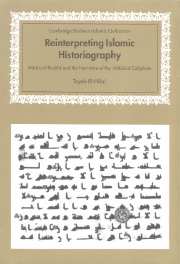Book contents
- Frontmatter
- Contents
- Acknowledgments
- List of abbreviations and note on the dates
- Genealogical table: the line of the early ʿAbbāsid caliphs
- Chapter 1 Historical background and introduction
- Chapter 2 Hārūn al-Rashīd: where it all started or ended
- Chapter 3 Al-Amīn: the challenge of regicide in Islamic memory
- Chapter 4 Al-Maʾmūn: the heretic Caliph
- Chapter 5 The structure of civil war narratives
- Chapter 6 Al-Mutawakkil: an encore of the family tragedy
- Conclusion
- Select bibliography
- Index
Chapter 3 - Al-Amīn: the challenge of regicide in Islamic memory
Published online by Cambridge University Press: 26 June 2009
- Frontmatter
- Contents
- Acknowledgments
- List of abbreviations and note on the dates
- Genealogical table: the line of the early ʿAbbāsid caliphs
- Chapter 1 Historical background and introduction
- Chapter 2 Hārūn al-Rashīd: where it all started or ended
- Chapter 3 Al-Amīn: the challenge of regicide in Islamic memory
- Chapter 4 Al-Maʾmūn: the heretic Caliph
- Chapter 5 The structure of civil war narratives
- Chapter 6 Al-Mutawakkil: an encore of the family tragedy
- Conclusion
- Select bibliography
- Index
Summary
In the accounts of the early ʿAbbāsid caliphs, al-Amīn stands out as the epitome of political incompetence and reckless behavior. A man deficient in political wisdom, most at home in extended sessions of drinking and revelry, and with a flair for unpredictable eccentricities, he personifies a type of rulership opposite to ʿAbbāsid religious pretensions and the Persian ideal of monarchal behavior. Illustrations of al-Amīn's curious behavior abound in the chronicles. Jahshiyārī, for example, describes how al-Amīn, after neglecting provincial affairs for a year, one day decided to study the provincial reports. As he indulged in a meal, al-Amīn, we are told, commenced listening to these reports and intermittently issued his decrees. Then when all the business of state was put in order, he ordered that all these provincial documents be placed in the center of the assembly, called for his wine goblet, settled down to drink, and then ordered someone to set the pile of official documents ablaze while he broke into laughter to the amazement of his vizir, al-Faḍl b. al-Rabīʿ. Masʿūdī corroborates this frivolity with another anecdote that describes how, at the height of the siege of Baghdad, the caliph was seen to be mostly preoccupied with finding a goldfish that had escaped from a basin in his court to a channel leading to the river, and turned the palace upside down to find it. And Ṭabarī, too, who always seems to have something that agrees with every other chronicler, has his own stories to tell about the caliph.
- Type
- Chapter
- Information
- Reinterpreting Islamic HistoriographyHarun al-Rashid and the Narrative of the Abbasid Caliphate, pp. 59 - 94Publisher: Cambridge University PressPrint publication year: 1999
- 1
- Cited by



